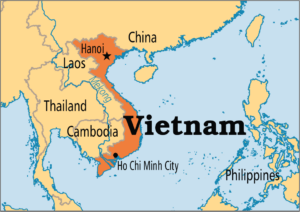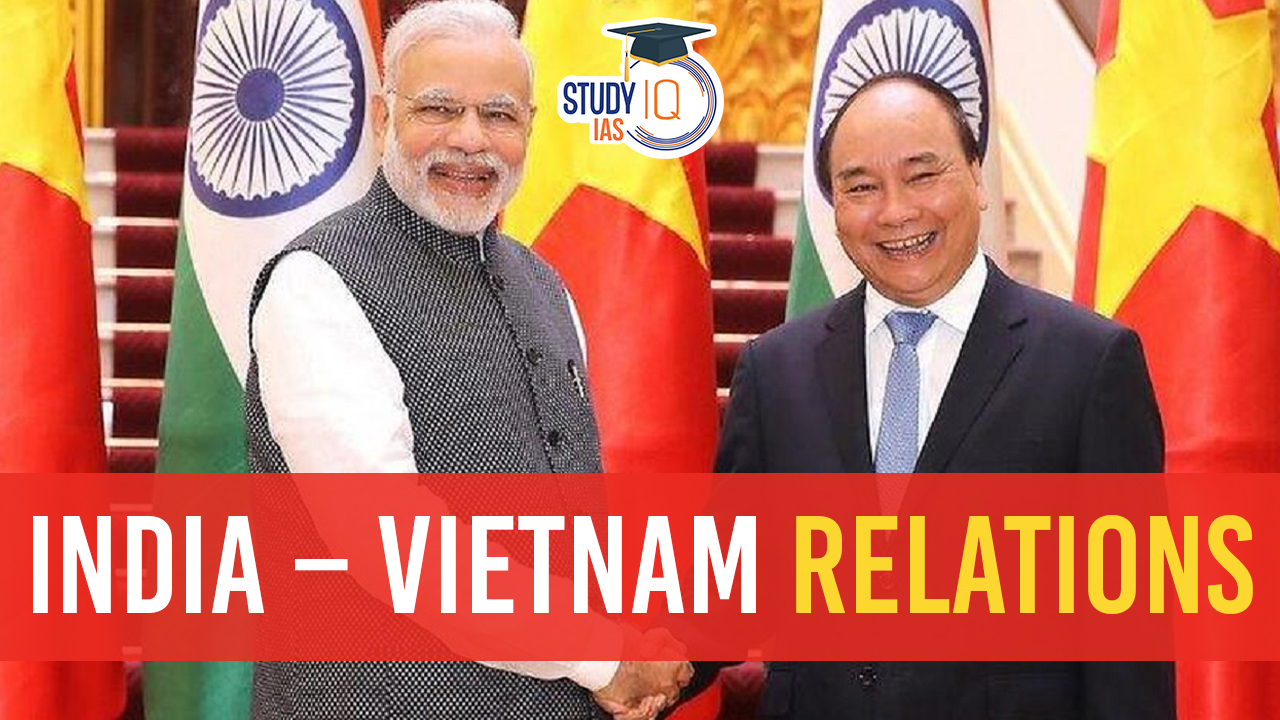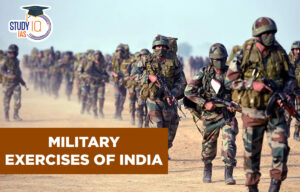Table of Contents
Context: Vietnam’s transformative journey from colonial rule and war to becoming a prosperous and peaceful nation highlights the potential for stronger India-Vietnam ties.
We’re now on WhatsApp. Click to Join
India-Vietnam Relations Evolution
- India and Vietnam, with historical roots in the common struggle for liberation from colonial rule and the national struggle for independence, share traditionally close and cordial bilateral relations. Mahatma Gandhi and Ho Chi Minh, regarded as the Father of Nation in India and Vietnam respectively, led people in their heroic struggle against colonialism in the two countries.

- Jawaharlal Nehru was one of the first visitors to Vietnam after its victory against the French at Dien Bien Phu in 1954. President Ho Chi Minh visited India in February 1958. President Rajendra Prasad visited Vietnam in 1959. Vietnam is an important regional partner in South East Asia.
- India and Vietnam have been closely cooperating in various regional forums such as ASEAN, East Asia Summit, Mekong Ganga Cooperation, and Asia Europe Meeting (ASEM) besides the UN and WTO.
- India was the Chairman of the International Commission for Supervision and Control (ICSC), which was formed under the Geneva Accord of 1954 to facilitate the peace process in Vietnam.
- India initially maintained Consulate-level relations with the then North and South Vietnams and later established full diplomatic relations with unified Vietnam on 7 January 1972.
- India granted the “Most favoured nation” status to Vietnam in 1975and both nations signed a bilateral trade agreement in 1978 and the Bilateral Investment Promotion and Protection Agreement (BIPPA) on 8 March 1997.
- The relationship was further strengthened when India, in the early 1990s, initiated its “Look East Policy” with the specific objective of economic integration and political cooperation with Southeast Asia and East Asia.
- Relations between the two countries were elevated to the level of ‘Strategic Partnership’ during the visit of Vietnam’s Prime Minister Nguyen Tan Dung to India in July 2007. In 2016, during Prime Minister Modi’s visit to Vietnam, bilateral relations were further elevated to a “Comprehensive Strategic Partnership”.
- India-Vietnam adopted a historic “Joint Vision for Peace, Prosperity and People” to guide the future development of bilateral relations in 2020.
- India and Vietnam are members of the Mekong–Ganga Cooperation, created to enhance close ties between India and nations of Southeast Asia.
- Vietnam has supported India’s bid to become a permanent member of the United Nations Security Council and join the Indo-Pacific Economic Cooperation (APEC).
Areas of Cooperation Between India and Vietnam
- Strategic Partnership: Both countries aim to strengthen their strategic partnership based on India’s Indo-Pacific Oceans Initiative (IPOI) and ASEAN’s Outlook on Indo-Pacific, with a focus on shared security, prosperity, and growth in the region.
- Institutionalised Mechanisms: The Joint Commission Meeting at the Foreign Ministers’ level and Foreign Office Consultations (FOCs) provide a framework for bilateral cooperation. There are also mechanisms like Security Dialogue at the Defense Secretary Level, the Joint Committee on Science and Technology, the Joint Working Group on Educational Exchange, and the Joint Sub-Commission on Trade.
- Economic Cooperation: Trade and economic relations have significantly improved, particularly after the signing of the ASEAN-India Free Trade Agreement. According to Indian data for the financial year April 2021-March 2022, bilateral trade posted a growth of 27% and reached US$ 14.14 billion.
- Indian exports to Vietnam amounted to US$ 6.70 billion (an increase of 34%) while Indian imports from Vietnam amounted to US$ 7.44 billion (an increase of 21%).
- Defence Cooperation: Both countries signed the ‘Joint Vision Statement on India-Vietnam Defense Partnership towards 2030’ and a Memorandum of Understanding (MoU) on Mutual Logistics Support.
- Vietnam-India Bilateral Army Exercise: VINBAX
- India gifted the indigenously built in-service missile corvette INS Kirpan to Vietnam.
- Science and Technology: Agreements have been exchanged on agricultural research, and an Advanced Resource Centre in Information and Communications Technology (ARCICT) was inaugurated in Hanoi.
- Assistance and Capacity Building: India has provided Lines of Credit (LoCs) to Vietnam on concessional terms and conditions for development projects. Scholarships under the Indian Technical and Economic Cooperation (ITEC) program are offered to Vietnamese students. Assistance includes projects such as the establishment of an Indira Gandhi Hi-Tech Crime Laboratory.
- Cultural Relations: Cultural ties are fostered through events and festivals, such as the “Buddhist Festival – Days of India” organised in Vietnam. The Indian Business Chamber (INCHAM) is an organisation of Indians living in Vietnam, primarily to promote trade and business interactions.
- People-to-People Contacts: Both countries have facilitated a simplified visa regime to promote bilateral tourism. Special initiatives, like the Jaipur artificial limb fitment camps under the “India for Humanity” initiative, have been organised to benefit the Vietnamese people.


 Utkal Divas 2025: Odisha Foundation Day ...
Utkal Divas 2025: Odisha Foundation Day ...
 List of Military Exercises of India 2024...
List of Military Exercises of India 2024...
 Africa’s Nuclear Energy Market Status ...
Africa’s Nuclear Energy Market Status ...





















